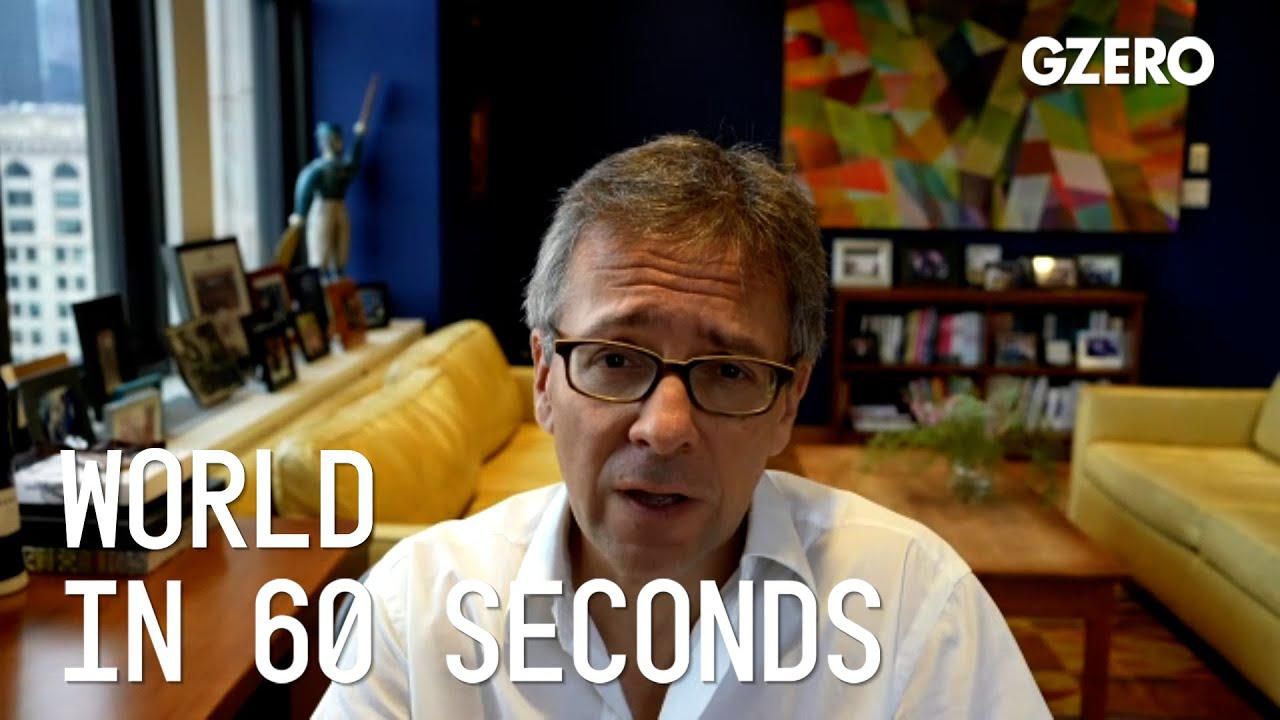Ian Bremmer shares his insights on global politics this week on World In :60:
Will the Afghan earthquake worsen the situation there?
It is a pretty substantial earthquake. Looks like hundreds are dead. And of course, this is on the back of the Taliban taking over, the economy falling apart, a lot of food stress and women being knocked back into the Stone Age. So much that had been fought for over 20 years, trillions of dollars spent. The focus of course recently has been all about Ukraine. And of course the global impact there is much bigger, but we should not forget that the reality of life at Afghanistan today for anyone that wants to be a free citizen and particularly for women and young women is absolutely unconscionable. Not a lot of support after the initial outreach for those that are trying to get out to become refugees to be welcomed in other countries. This is a disaster. It deserves humanitarian aid, even though it has to go through the Taliban and certainly deserves allowing more Afghans to get out. That is a big problem.
Is Putin back to the world stage in Beijing's summit?
I would say that Putin has never left the world stage. He's left the stage for the advanced industrial economies. He is becoming a pariah when we talk about the G7, the United States and rich democracies. And there over time, he's being cut off and he's being cut off very hard. That's very different from India or China or Brazil or any developing country that needs Russia for oil, needs Russia for food, needs Russia for fertilizer. They are not going to be those that were buying lots of defense equipment from Russia. That's not going to happen to the same degree because they won't have the semiconductors. They won't have the spare parts. That's really going to hurt.
But I do think that a recognition on the part of the United States and allies, there are a lot of countries around the world, many of which are democracies that are still very happy to work with Putin. That's a big deal. There's a friend of mine that recently had a meeting with the South African president. And when he sat down, he was like, "I want to thank you so much for teaching us about this country we'd never heard of before." Of course, he was talking about Ukraine and he was being very sarcastic, precisely because the fact that the Americans and others are trying to get the South Africans to pay attention to Ukraine when the South Africans have been trying to get other countries to pay attention to Africa, and those countries have paid very little attention. That's always an issue.
How likely will Ukraine, speaking of Ukraine, get its EU membership?
I think it's almost certain that they will get a unanimous vote in favor of EU candidacy. The process to get from candidacy to membership is very long and requires an awful lot of both economic reform in Ukraine, but also political leverage on other countries because one can keep them held up. Keep in mind, Turkey's been a candidate member for how long, and they never became an actual member of the EU and it's not going to happen. So there is that issue. But frankly, as a candidate member of the European Union, what that does mean is the Europeans are saying that they, as the EU will be at war with Russia. That's a big deal and that is going to affect what Russia's relations are going to be like permanently with the EU going forward, unless I'm wrong and there's some breakthrough negotiation with the Ukrainians, but I just don't see it, no time in the future.
More For You
Is the AI jobs apocalypse upon us? On Ian Explains, Ian Bremmer breaks down the confusing indicators in today’s labor market and how both efficiency gains as well as displacement from AI will affect the global workforce.
Most Popular
Think you know what's going on around the world? Here's your chance to prove it.
Nigel Farage, the far-right UK leader, reportedly told donors that he plans to join forces with the center-right Conservative Party ahead of the next election. Right-wing groups in other parts of Western Europe have largely avoided making such an alliance.
Nearly four years into Russia's invasion of Ukraine, the push to end the war is intensifying. The past few weeks produced not one but two proposals.
